A Debate Coach Judges Donald Trump and Joe Biden's Final Face-Off
No one watching the debate was a winner, but there was a clear choice on which candidate came out on top.
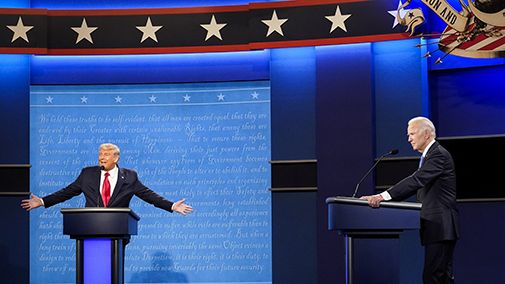

For those of us who took debate class in middle school (ahem, me), you might recall the sweat-inducing terror of going head-to-head with Jackie from homeroom on whether or not, say, zoos should be abolished. You might also remember your debate teacher judging your battle of wits and words on how well you observed your speech time, respected debate etiquette, and your overall argument's persuasiveness (Conservation breeding programs! Animal rights!).
Pam Wycoff has presided over debates for decades: As the Board President of the National Speech & Debate Association (the largest speech and debate organization for middle school, high school, and collegiate student competitions in the U.S.) and a high school debate teacher of 28 years, the speech and debate coach Hall of Famer (yes, it's a thing!) has seen her fair share of arguing, and has judged over 500 academic debates in her lifetime. But she'd never seen anything quite like the first 2020 presidential debate between Donald Trump and Joe Biden: "It was a turf war," she says. "That was a standout example of two people who each had ideas they wanted to say and felt couldn't allow each other to communicate the message without trying to get the last word in. It was pushed so much, particularly by Trump, that Biden had to respond so he would look like he wasn't standing up for his beliefs."
To make things go, uh, more smoothly for the third and final 2020 presidential debate on last night, October 22, the Commission on Presidential Debates announced new rules: Each candidate was told they would get two minutes to answer questions, uninterrupted, and got a gentle warning from NBC correspondent, moderator, and cross examination queen Kristen Welker to play nice. Oh, and that after the screaming match of the initial debate, their mics were muted off while the other was talking. Both mics were live after each had answered the question, giving them opportunity to directly respond to one another.
Due to the new rules, last night's debate was certainly a bit less combative than the first, but no less contentious. And Wycoff has thoughts: Below, read her analysis of the last 2020 presidential debate:
On Your Marks, Get Set, Debate:
One basic difference between academic debates and political debates is that there is not an initial case that is outlined and then directly refuted or supported; political debates center around questions offered by a moderator and each candidate is expected to answer questions. These answers essentially lay out a case to the American public that will convince citizens that their plans will be effective, their views align with theirs, and/or that they can “get the job done” as a leader. This debate was separated into numerous topic areas. I will highlight some of the topics discussed that stood out to me and impacted my final decision.
Overall Demeanor:
Trump often put both hands and leaned into the podium and expanded his stature in that way; Biden was more often behind the podium, willing to jot down notes and react. He used the podium as a surface to write on as opposed to a convention. It's important to have good posture, not shift around, and to be connected with what you are saying. That comes out through your body language. Interestingly, both debaters looked connected. They controlled their space well.
COVID-19:
The opening question dealt with one of the most important issues that resonates with voters, COVID-19. The moderator framed the question with specific statistics about the loss of human lives. Each candidate was asked to explain specifically what they would do as President: Donald Trump was first to answer, and his response did not directly answer the question. Rather than outlining what he would do, moving forward, he tried to build a case for what a great job he has done. However, his answer was more a stream of consciousness list including, “closing the boarder,” shifting blame to China, claiming a vaccine will be available “very soon,” that things are not as bad as predicted, that spikes in Florida, Texas, and Arizona have now gone down, emphasizing that we are “rounding the curve,” and, noting that because he had had the virus he was now immune. Although this might appear to make a great case for his approach, in a traditional debate this answer would not be effective because it did not offer clear steps moving forward. It also was ineffective because it seemed to ignore the loss of so many lives.
Stay In The Know
Get exclusive access to fashion and beauty trends, hot-off-the-press celebrity news, and more.
As the second speaker to answer the question, Biden took the opportunity to clash with Trump by stating that “someone who does not take responsibility for the loss of life does not deserve to be your President.” This cast doubt on Trump’s willingness to recognize the magnitude of the problem, his lack of empathy for the loss of life, and unwillingness to take accountability for the situation. Biden enumerated steps, including the promotion of wearing masks, Rapid Testing, establishing National Standards that would guide schools and businesses, and finally the promise of government resources to assist schools and businesses through this crisis. Although this was also a list, it was organized and directed to a future plan, thus more substantive.
Biden also referred to the New England Journal of Medicine: Reference to credible scholarly research for supporting evidence is important in competitive debate because it establishes that this is not a personal assertion. Instead, an expert, study, or scholarly research supports the validity of the plans or claims that are being made.
There was also an exchange in this segment that Biden capitalized on. Trump spoke about the virus not being an issue in schools because young people are less susceptible and asserted that it was not really a problem for teachers. Biden capitalized on these remarks with two responses that were stylistically effective: Trump commented that people are learning to live with this, and Biden responded with, “learn to live with it?” It should be more accurately phrased as 'Learning to die with it.'” This emphasized Trump’s need to recognize the magnitude of the problem. Also, when Trump tried to minimize the risk of the virus to teachers, Biden later turned to the camera and asked, “Teachers, how does that make you feel?” to express that that their safety is a concern. Biden referred to a credible source, The New York Times, to reinforce his position that Trump did not act responsibly because he knew about the virus but chose not to tell the American people to avoid panic. On this issue, as a debate judge, Biden won this topic area issue in the round because he made a stronger case that he would be better suited to handle COVID-19.
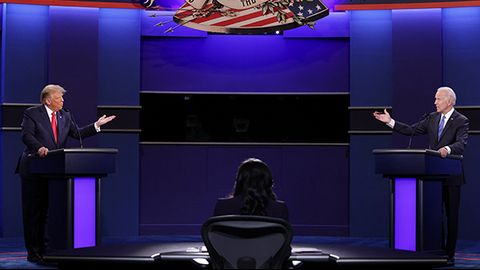
Biden and Trump face-off in the final debate
Climate Change:
In this case, Trump answered this question first. He made several general claims, without citing any evidence: that we have the many programs, the best carbon emissions in years, and briefly defended his choice to pull out of the Paris Accord. In competitive debate, claims need a warrant, which could be evidence or analysis to support the validity of these statements, however Trump provided no evidentiary support.
On this issue, Biden approached this topic more directly and supported his claims. Because the expectations for specific source citations are lower for political debate, Biden tried to back up his argument by stating, “we are told by scientists that we have very little time left.” He also built credibility in his approach because he stated that his plans are supported by environmentalists and labor experts, so if both agreed that this approach is not only necessary, it becomes viable. In addition, he also painted a picture of environmental harms that he experienced during his life.
During the exchanges on this topic, Trump went on the offensive and pressed Biden, first about banning fracking and next about the eventual elimination of the oil industry. Although Biden chose to answer directly and honestly, which is important, he could have better articulated his position: For those whose livelihoods are tied to oil, it is not easy to convince them that the only job they have known is as good as the alternative jobs that his plan promises to provide. Trump capitalized on this by speaking directly to the states whose economies are heavily tied to oil. Each candidate painted a clear choice. Although Biden’s arguments were more substantive, Trump was able to capitalize on an opening that could sell well with all those related to this industry.
Health Care:
Biden clearly pointed out that Trump has had four years to pass a health care plan and yet has provided none. Biden then pressed him on denying care for those with pre-existing conditions. Trump utilized loaded language when characterizing Biden’s approach as socialism. He also tried to group Biden together with other Democratic candidates such as Bernie Sanders or Elizabeth Warren, in an attempt to put Biden on the defensive. Biden’s responded with “there is a reason I am standing up here and the candidates are not.” This was effective because he separated himself from the others to diffuse Trump's attacks. Biden’s conviction that health care is not a privilege but a right, was strong.
A persuasive strategy both candidates employed during the debate was pointing out their opponent’s inability to accomplish plans during their tenure in office. Biden used this approach regarding COVID-19 and health care by pointing out that Trump had had his chance and did not yet develop a replacement for the Affordable Care Act. Trump also pressed Biden about his years as Vice President. Biden pointed out he was facing a Republican Congress during the Obama Administration. Biden could have further capitalized on this by explicitly stating that this lack of progress was not because of a lack of good plans, but rather political partisanship.
Racism:
The "I'm the least racist person in the room" comment was an exceptionally uncomfortable moment, especially for a debate. Trump is very much is a person who is about the ME rather than the WE. It’s about defending himself as opposed to how the issue should be dealt with or how we should help others to succeed. I think that’s where they are divided: the ethos. Many of Trump's answers are ME centered. Biden is generally speaking as a person who is willing to consult experts and make the best judgment for all.
Closing Argument:
In academic debates, the final speeches by each debater generally maximizes the main arguments they are winning and minimizes those they are losing in order to convince the judge why they should win the round. In this political debate, the last question on leadership was a great choice: As President, what would you say to those who did not vote for you? It allowed each candidate one final chance to win both the hearts and minds of supporters and non-supporters.
Each candidate handled it a bit differently, although each targeted issues that would trigger emotions. Trump mainly focused on the economy, the threat of regulations, and “401k’s” going to hell. Biden chose to focus on uniting, calling himself an “American President," embracing hope over fear. He would improve lives by tackling systemic racism and providing clean energy. This spoke to voters’ quality of life physically and socially. He also closed with the importance of restoring character in the office and offering everyone a fair chance.
They each captured ideas that could resonate with voters, but Biden was better able to re-assure all voters that regardless of their vote, he would care about them and their future.
The Verdict:
Although Trump was able to take some ground away from Biden on the topic of climate change, Biden more consistently built his case on the majority of issues based on substance. If I were judging this round, according to the arguments and evidence put forth, the winner would be Joe Biden. Throughout the debate his arguments and responses were more clearly outlined, developed and substantiated. His reliance on evidence and experts also enhanced the credibility of his arguments.
Megan DiTrolio is the editor of features and special projects at Marie Claire, where she oversees all career coverage and writes and edits stories on women’s issues, politics, cultural trends, and more. In addition to editing feature stories, she programs Marie Claire’s annual Power Trip conference and Marie Claire’s Getting Down To Business Instagram Live franchise.
-
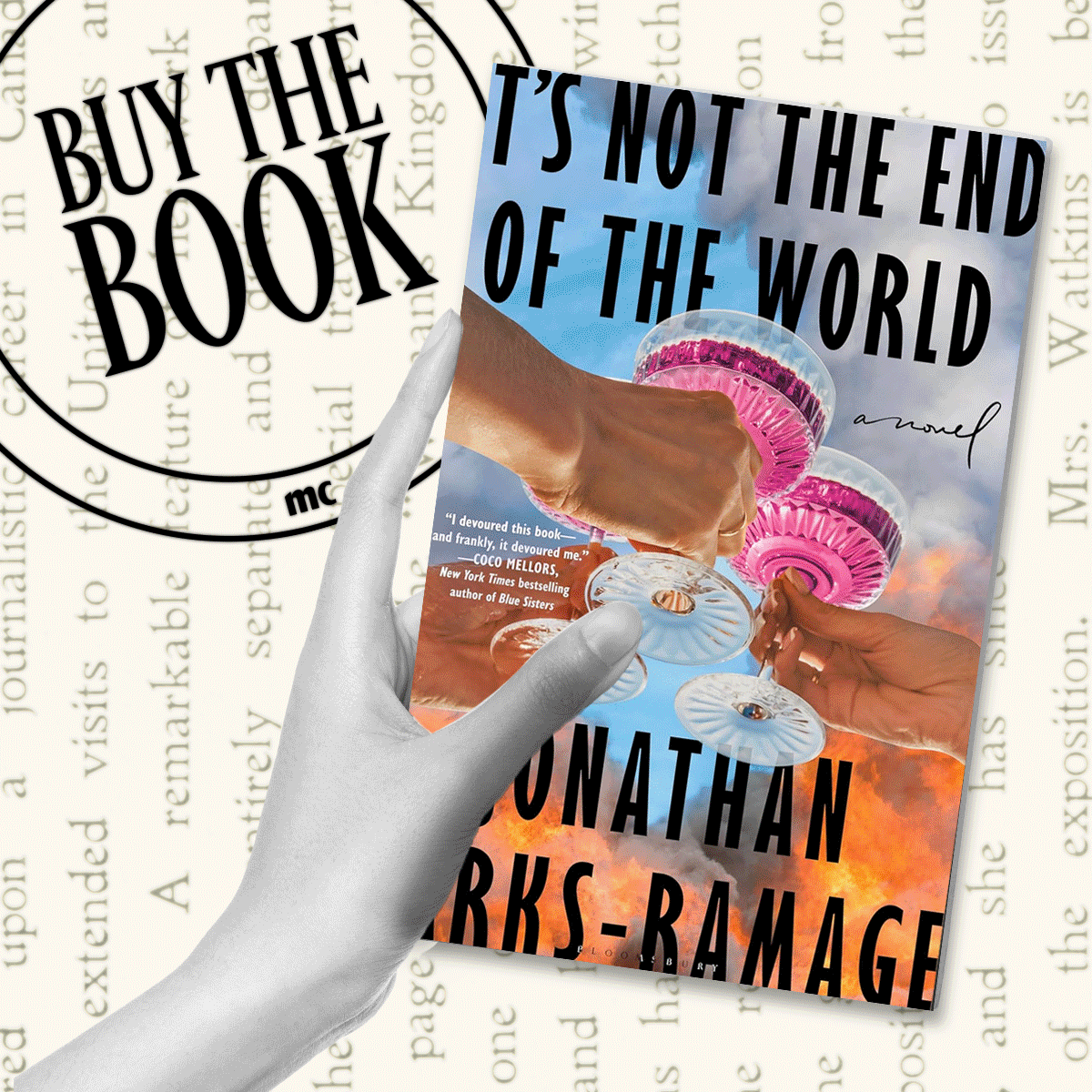 Climate Fiction So Earth-Shattering You’ll Never Forget to Recycle Again
Climate Fiction So Earth-Shattering You’ll Never Forget to Recycle AgainThese dystopian books imagine a future where the worst has already happened.
By Liz Doupnik
-
 I Hate Mornings—But This 15-Minute Soft Glam Routine Never Fails Me
I Hate Mornings—But This 15-Minute Soft Glam Routine Never Fails MeFrom a $12 moisturizer to a $120 hydrating serum, I'm a master of the high-low aesthetic.
By Siena Gagliano
-
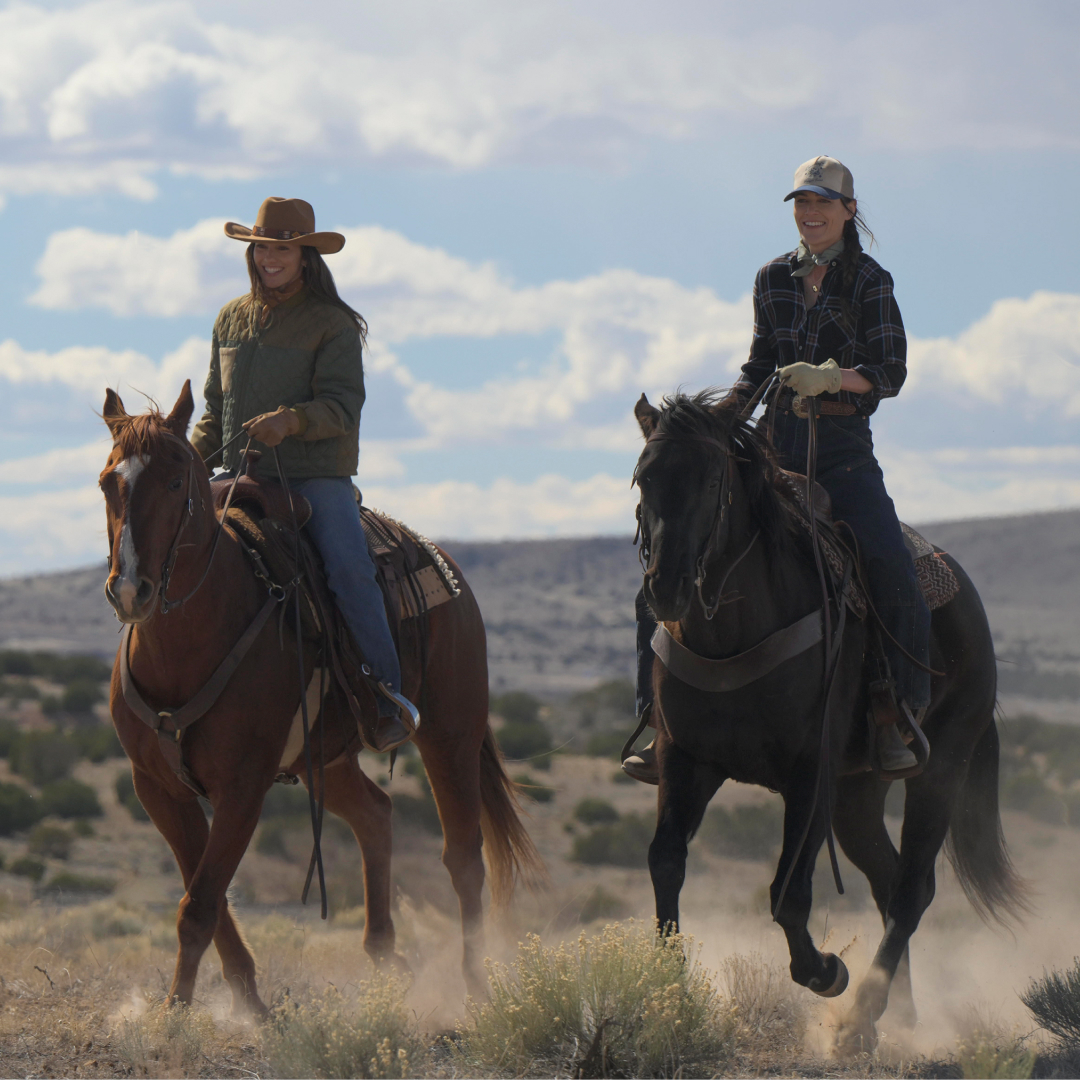 'Ransom Canyon' May Give Texas the Small-Town Drama Treatment, But That's Not Where It Was Filmed
'Ransom Canyon' May Give Texas the Small-Town Drama Treatment, But That's Not Where It Was FilmedHere's what to know about the real-life ranches featured in the Netflix series.
By Quinci LeGardye
-
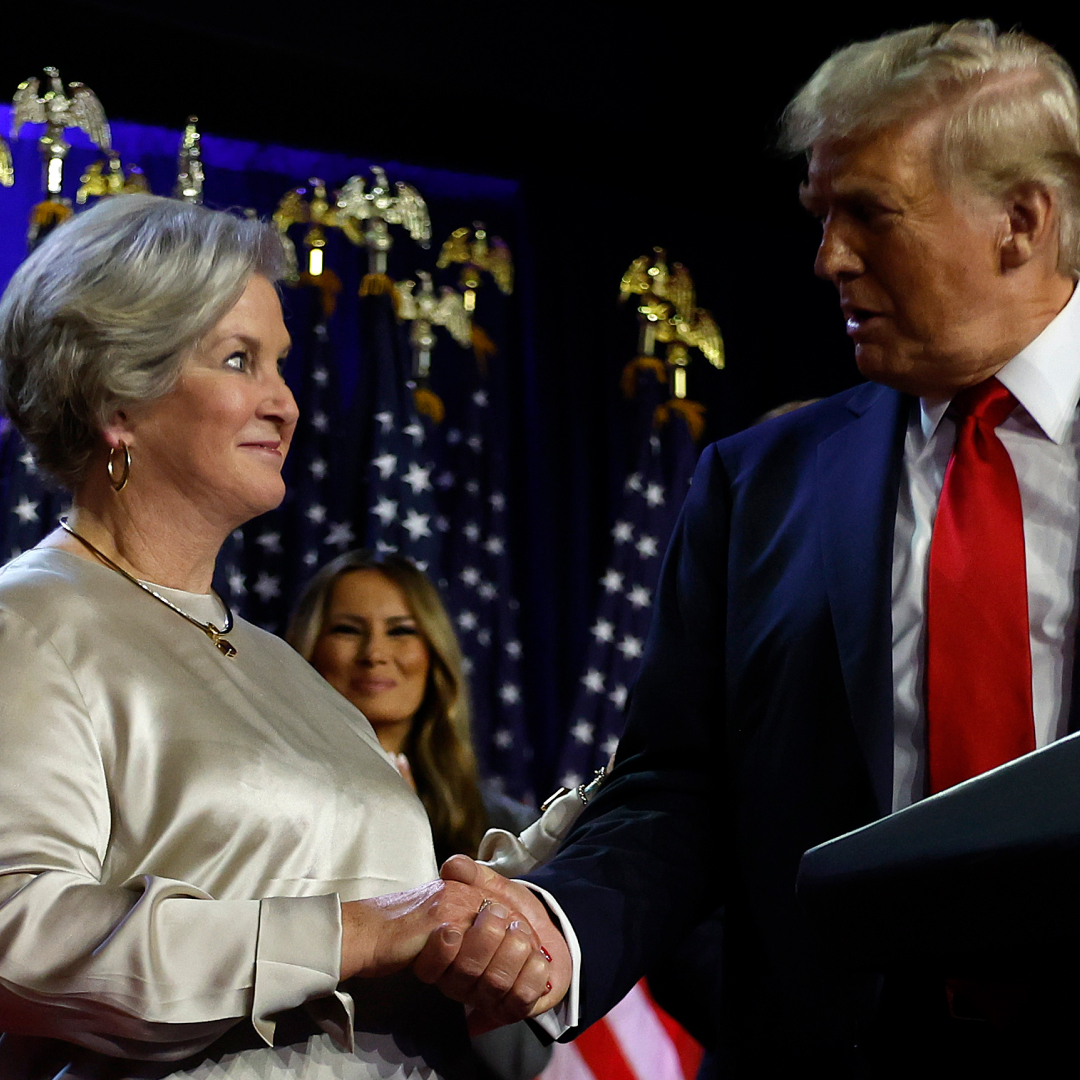 Who is Susie Wiles? President-Elect Donald Trump Names His White House Chief of Staff
Who is Susie Wiles? President-Elect Donald Trump Names His White House Chief of StaffThe political consultant helped the former president run his successful 2024 campaign.
By Danielle Campoamor
-
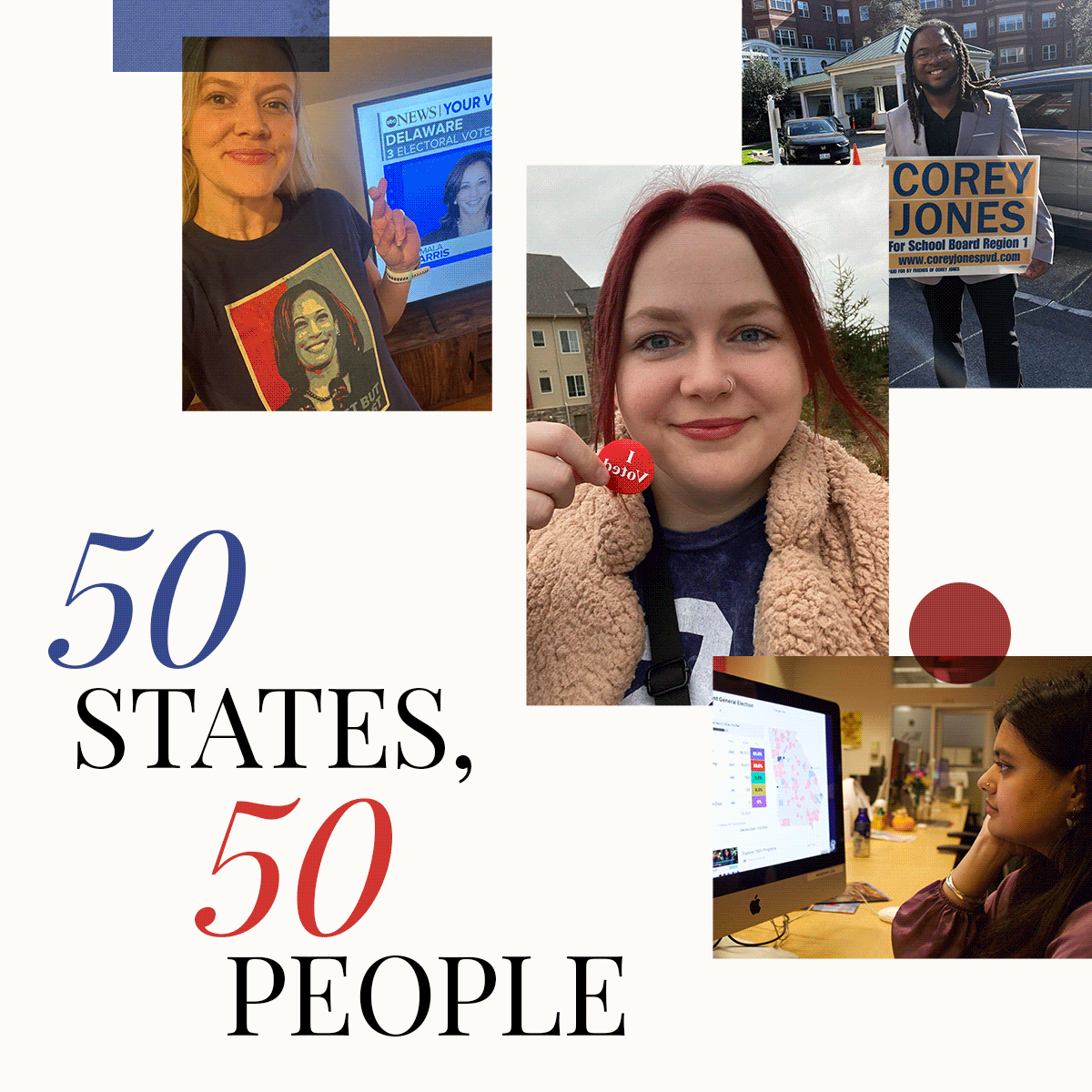 A Nationwide Reaction to the 2024 Election
A Nationwide Reaction to the 2024 ElectionHow are people feeling in this moment? Marie Claire spoke to folks across the country to find out what they were thinking as they cast their votes and waited to hear the results.
By The Editors
-
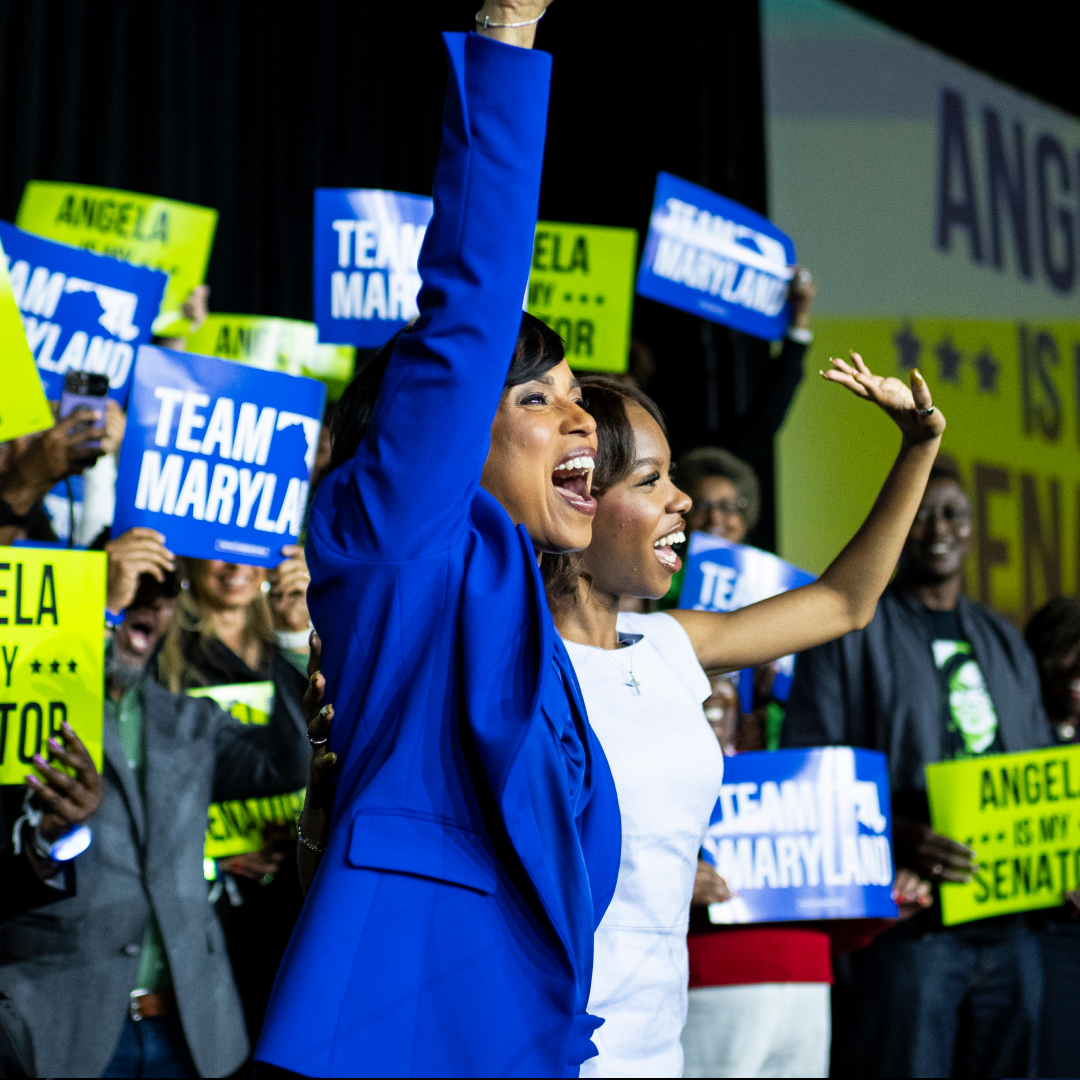 The Historic Election Victories Worth Celebrating
The Historic Election Victories Worth CelebratingIncluding momentous firsts, abortion protections, and New York's "Equal Rights Amendment."
By Iris Goldsztajn
-
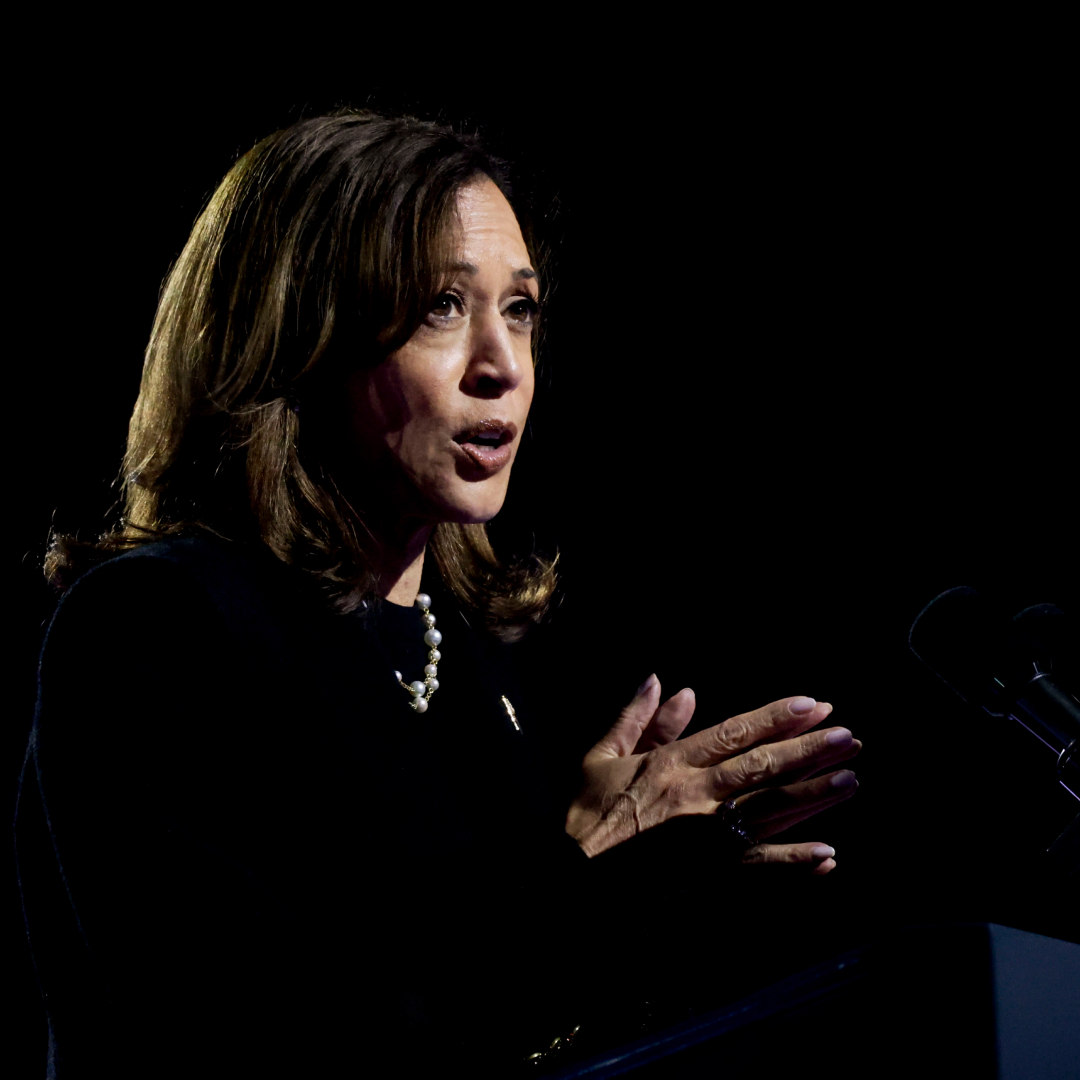 Kamala Harris Has Lost the 2024 Presidential Election
Kamala Harris Has Lost the 2024 Presidential ElectionIt's official.
By Jenny Hollander
-
 Donald Trump Is Ordered to Pay E. Jean Carroll $83.3 Million in Damages
Donald Trump Is Ordered to Pay E. Jean Carroll $83.3 Million in DamagesCarroll had filed two defamation suits against the former president.
By Gabrielle Ulubay
-
 E. Jean Carroll Triumphs Over Donald Trump In Civil Suit
E. Jean Carroll Triumphs Over Donald Trump In Civil SuitA jury found him liable for sexual abuse and defamation.
By Gabrielle Ulubay
-
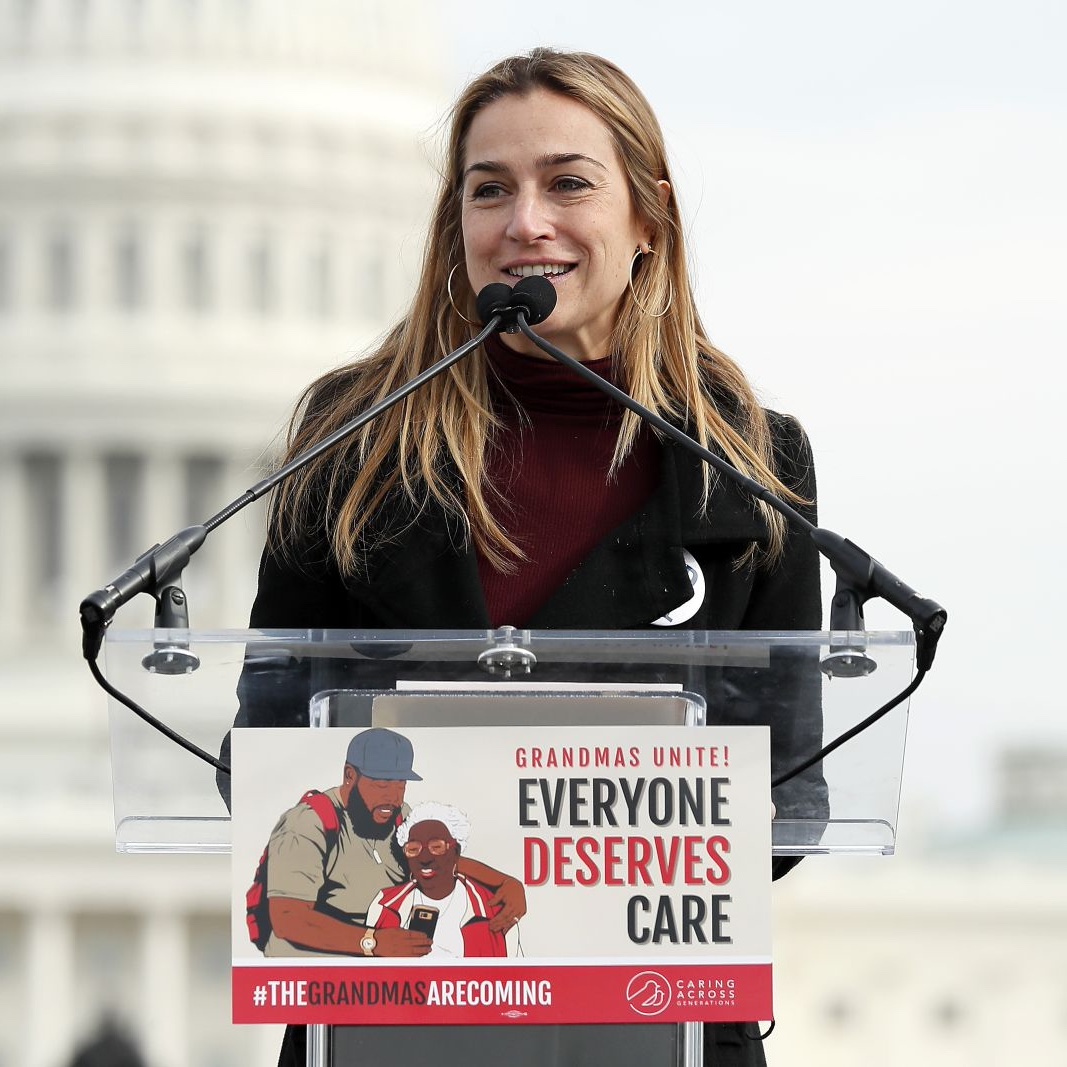 What's the Holdup in Biden's Push for Paid Leave?
What's the Holdup in Biden's Push for Paid Leave?The president is proposing $325 billion to fund paid family leave—the strongest budget proposal in history—and pushing for free universal pre-K nationwide. But he faces opposition.
By Dawn Huckelbridge
-
 36 Ways Women Still Aren't Equal to Men
36 Ways Women Still Aren't Equal to MenFeatures It's just one of the many ways women still aren't equal to men.
By Brooke Knappenberger